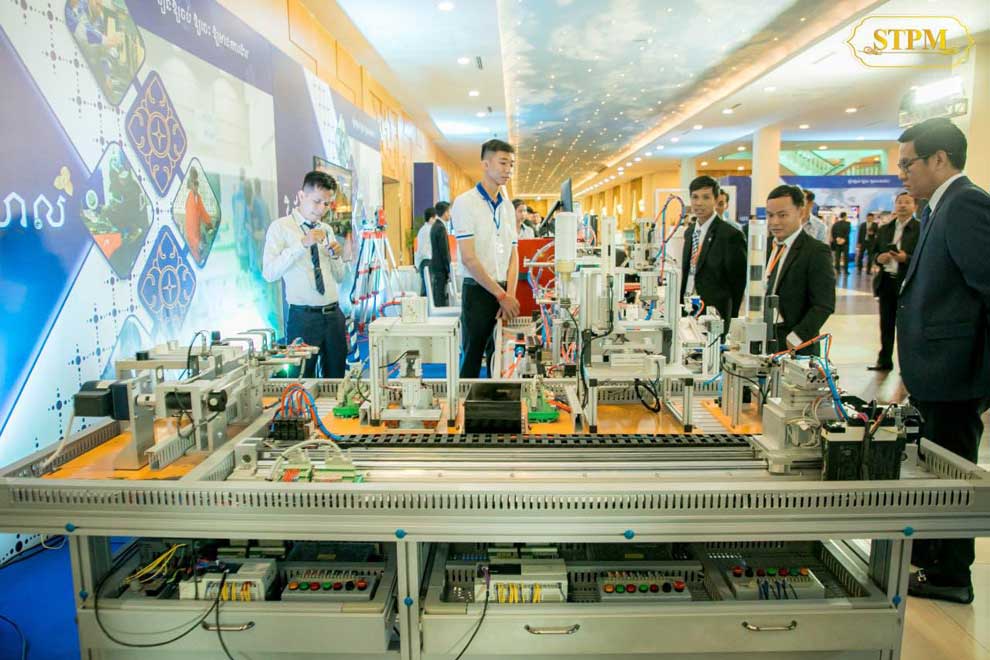
Justice minister Koeut Rith visits the drug rehab centre in Battambang province on December 19. MOJ
A total of 130 young reformed drug users, including men and women, have received vocational training certificates from the Ke Sinuon Drug Treatment and Rehabilitation Centre, located in Sdao commune of Battambang province’s Ratanak Mondol district. Their temporary certification means they are ready to return to their communities and seek gainful employment.
The certificates were presented at a December 19 ceremony presided over by Koeut Rith, minister of justice and vice-chairman of the National Authority for Combating Drugs (NACD).
According to a ministry social media post, 28 of the 130 have been successfully trained in installing electrical fixtures and fittings, 16 in car maintenance and repair, 22 in computer support services, 39 in fruit and vegetable processing and 25 in veterinary skills.
During the ceremony, Koeut Rith praised the graduates, noting the courage and determination they have shown to overcome many obstacles and free themselves from drug addiction. He congratulated them on seizing the opportunity to build new lives among society, become good citizens and contribute to the Kingdom’s socio-economic development.
“You were all given the opportunity to stay at the rehabilitation centre, recover from drug use and gain valuable professional skills. Please work to reintegrate into your communities and become good children and good citizens,” he said.
The minister reiterated that the government considers all drug users to be victims rather than criminal, and encouraged them to get treatment and rehabilitation at one of the 19 such centres across the country.
Ke Sinuon, director of the namesake rehabilitation facility, said that in the year since the centre was opened, it has made significant contributions to the government’s goal of helping drug victims. It has done so through psychological education, rehabilitation and vocational training, in order to give the victims of the drug trade the opportunity for a new life.
He explained that as of December 19, the centre had accepted a total of 559 young people for treatment and rehabilitation services. The families of 320 individuals sent them to the centre, while 210 were court-ordered to attend. A further 29 were referred by the Battambang Provincial Department of Social Affairs, Veterans and Youth Rehabilitation.
He added that to date, 265 people,15 of them women, have been successfully reintegrated into their communities and reunited with their families.
Am Sam Ath, operations director at rights group LICADHO, said the drug problem is one which affects many young people, noting that the majority of prison inmates are being held for drug offences.
He believes that it is crucial for young drug users to receive treatment and rehabilitation services, as well as vocational training, so that when they return to their families and communities, they can use their newfound skills to earn a living and stay away from the temptation of drugs.
“Vocational training for the victims of drugs is important. As an organisation working on the promotion of human rights, we want to see all drug treatment and rehabilitation centres provide effective rehabilitation and vocational training. In the past, some centres have been criticised as places of violence and even torture by the people staying there,” he added.























